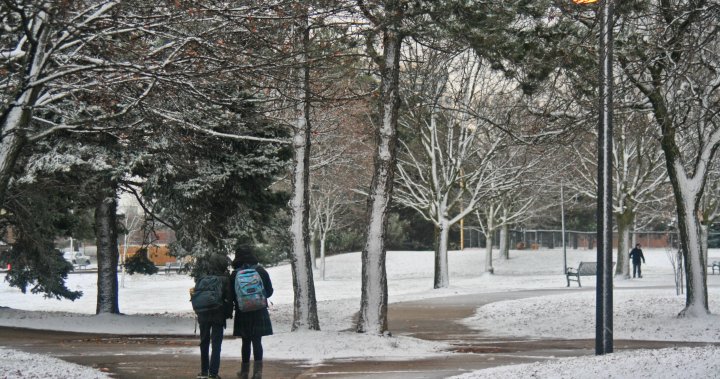Infra
Doug Ford amps up bike lane rhetoric, while questions mount for cities | CBC News

In a speech at Toronto’s Empire Club on Thursday, Ontario Premier Doug Ford said explicitly what his transport minister implied earlier this week: the province is willing to tear out existing municipal bike lanes on major thoroughfares.
“It isn’t enough to keep an eye on future bike lanes,” Ford told the paying audience. “We need to and will remove and replace existing bike lanes on primary roads that are bringing traffic in our cities to a standstill.”
Ford said removing existing lanes, often installed at a cost of millions of dollars to municipal taxpayers, is part of a larger focus on “getting drivers moving faster by bringing sanity back to bike lane decisions.”
The premier’s comments follow an announcement Tuesday that his government will introduce legislation forcing local governments to get provincial approval for any new bike lanes that remove a lane of vehicle traffic. Furthermore, Minister of Transportation Prabmeet Sarkaria said municipalities would need to retroactively justify any such cycling infrastructure installed in the last five years.
While Sarkaria also referenced cycling lanes in Kitchener and Ottawa, his comments were mostly geared toward Toronto, which is in the midst of a long-term strategy to build 500 kilometres of bike lanes throughout the city by 2041. He specifically mentioned existing lanes on Yonge Street, Avenue Road, College Street, Harbord Street and Bloor Street.
Sarkaria said many stretches of the lanes were completed during the COVID-19 pandemic, when their effects on traffic were unclear due to fewer vehicles on the roads. He repeated several disputed claims about bike lanes’ impact on response times for emergency services and questioned city-level data on their usage while pointing instead to data collected by a bar owner on Bloor Street W. in Etobicoke, where recently completed lanes have drawn significant local opposition.
The announcement garnered criticism from opposition parties, Toronto Mayor Olivia Chow and the Association of Municipalities of Ontario, which called it a “significant overreach into municipal jurisdiction.”
After Ford’s speech Thursday, Chow released another statement urging the province to instead focus on opening several delayed public transit projects in the city, namely the Eglinton Crosstown and Finch West LRT.
“While now the province today has said they’ll rip out existing cycling infrastructure… I’ll say it again: I do not support limiting city powers,” Chow said.
“Ripping up our roads will make congestion worse. Meanwhile, the province’s failure to deliver transit projects on time has led to long construction delays and years of road closures that have made it harder to get around our city,” she continued.
The Ontario government is introducing legislation to require municipalities to obtain approval from the province before installing new bike lanes that would result in the removal of lanes for traffic.
Cities await legislation, answers about costs
Some other cities have officially taken a wait-and-see approach in their public comments on the pending legislation.
In Mississauga, for example, where a planned bike lane on Bloor Street became a major flashpoint in the latest mayoral byelection, there’s uncertainty about what comes next.
“Beyond today’s press release, we do not have more information,” a city spokesperson said Tuesday. “We will wait for the introduction of the legislation and evaluate the details accordingly. Until that time, we cannot provide more comment.”
What is clear is that there will be a cost to ditching the bike lane plan.
Mississauga has already spent more $1 million on the planning and design phases of the cycling infrastructure. The project was opened for tender to bidders in late September, with construction slated to begin after a contract is awarded in coming months.
Toronto has removed bike lanes in the past. In 2012, after a protracted battle in council led in part by former mayor Rob Ford and Doug Ford, then a city councillor, the city opted to remove protected lanes on Jarvis Street. The lanes cost roughly $86,000 to install and about $270,000 to remove because a centre lane for vehicle traffic had to be re-added to the busy street.
Who will be on the hook for any lanes the province orders removed in the future remains unclear.










